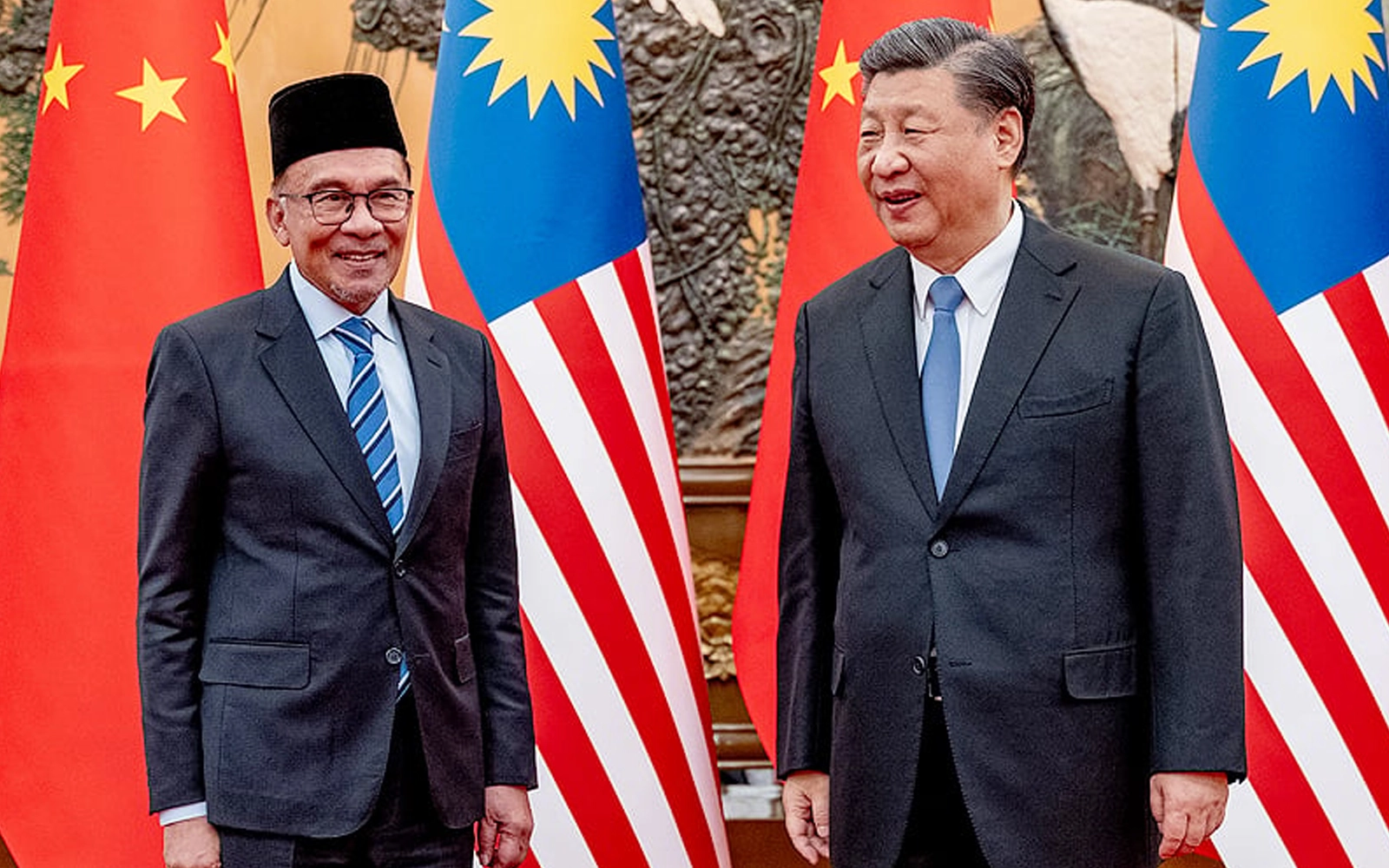FMT:
Malaysia must diversify trade, reduce dependency on China, says analyst
17 Mar 2024, 07:30 AM
Collins Chong says Putrajaya must take a firm stand against Beijing’s ‘intrusive’ behaviour.
Collins Chong says Putrajaya must take a firm stand against Beijing’s ‘intrusive’ behaviour.

In 2023, Malaysia earned RM192.2 billion from exports to China, while its imports amounted to RM258.6 billion. (Facebook pic)
PETALING JAYA: An analyst has called for Malaysia to diversify its trade by entering into partnerships with more countries and reducing dependency on China, particularly given its “intrusive behaviour” in the South China Sea.
Collins Chong, a security and strategy analyst with Universiti Malaya, said it was important for Malaysia to take a firm stance on such behaviour which may give rise to security issues and deter foreign investors.
“Malaysia’s approach in the South China Sea dispute has been subdued, relying on quiet and backdoor diplomacy to avoid risking overall ties with Beijing, its largest trading partner.
“However, lest we forget, the biggest chunk of Malaysia’s economic assets comes from the fossil fuel deposits located in the South China Sea.
PETALING JAYA: An analyst has called for Malaysia to diversify its trade by entering into partnerships with more countries and reducing dependency on China, particularly given its “intrusive behaviour” in the South China Sea.
Collins Chong, a security and strategy analyst with Universiti Malaya, said it was important for Malaysia to take a firm stance on such behaviour which may give rise to security issues and deter foreign investors.
“Malaysia’s approach in the South China Sea dispute has been subdued, relying on quiet and backdoor diplomacy to avoid risking overall ties with Beijing, its largest trading partner.
“However, lest we forget, the biggest chunk of Malaysia’s economic assets comes from the fossil fuel deposits located in the South China Sea.
“Therefore, to ensure that its interests and sovereignty in the sea are protected, Malaysia must break free from its heavy dependence on export-driven factors that rely heavily on China for capital and economic spillover effects,” Chong told FMT.
Presently, 17.1% of Malaysia’s total trade is with China.
Malaysia generated RM192.2 billion in revenue last year from the exports of goods to China and imported RM258.6 billion, mostly in the form of machinery, equipment and chemical products.
On March 4, Prime Minister Anwar Ibrahim defended Malaysia’s ties with China amid pressure from the United States and its allies to defend territorial integrity and freedom of navigation in the South China Sea.
Stressing that Malaysia is “fiercely independent” and will not be dictated by any external power, Anwar dismissed the call as an attempt to contain China’s rise, which he said would only aggravate the country and sow discord in the region.
The US-led appeals came in response to China’s publication of its 10-dash line last year, which claims as much as 90% of the 3.6 million sq km South China Sea, including maritime territories belonging to Malaysia, Vietnam, the Philippines and Brunei.
Collins said Anwar should not misinterpret the Western call to “uphold the rule of law” in the region as an attempt to dictate foreign policy, but as an attempt to preserve peace in the South China Sea, one of the world’s busiest trade routes.
kt comments: Collins Chong Yew Keat writes as an expert on strategic and security studies for several media portals, and displays what seems to be his pro American-West (and anti-China) views. His previous articles suggest to you his political proclivity, as follows (examples only):
(1) ASEAN’s Future Lies With America And Australia
(2) Why America And The West Are The World’s Best Bet
(3) India’s New Power Checkmating Of China Is The Indo Pacific’s New Hope
(4) Clear Deterrence and Message Needed to Deter Beijing
(5) Climate Action: The US Is Doing Its Part, Others Should Step up Too
(6) Chinese Digital Threat to Malaysia and the Region
... and etc etc etc
I would treat his advice to Malaysia with a degree of caution, especially when our country is in serious need for trade and commerce - hardly the right time to be choosy or to offend China a la Oz. But I reckon Anwar knows which part of the nation's economic roti is kaya-ed
Meanwhile, Sharon Seah of the Iseas-Yusof Ishak Institute said Malaysia should actively engage with Asean member states in a collective effort to uphold the rule of law in the South China Sea.
She said Malaysia should undertake minilateral and focused small-scale collaborations with Vietnam and the Philippines to show their combined maritime presence, similar to a collaboration announced by the two countries on Jan 30.
Seah proposed that Asean organise a joint military exercise annually, similar to the Asean solidarity exercise conducted last September, to foster trust among its member states and enhance their ability to work together in case of disasters or conflicts in the region.
“While China is Asean’s largest trading partner, it is also a major source of Asean’s insecurity,” she said.
It is also hardly the right time to be choosy or to offend the Yankees, which Madani Dude seems to be spending a lot of time and energy on.
ReplyDeleteThe days
USA IS still a major, major and growing Export destination for Malaysian manufactures goods.
Better know accurately which part of the nation's economic roti is kaya-ed
Mfer, reread the article AGAIN & AGAIN.
DeleteIt's about diversification with smart geopolitical strategy!
Only then u fart about putting yr bets on the Yank.